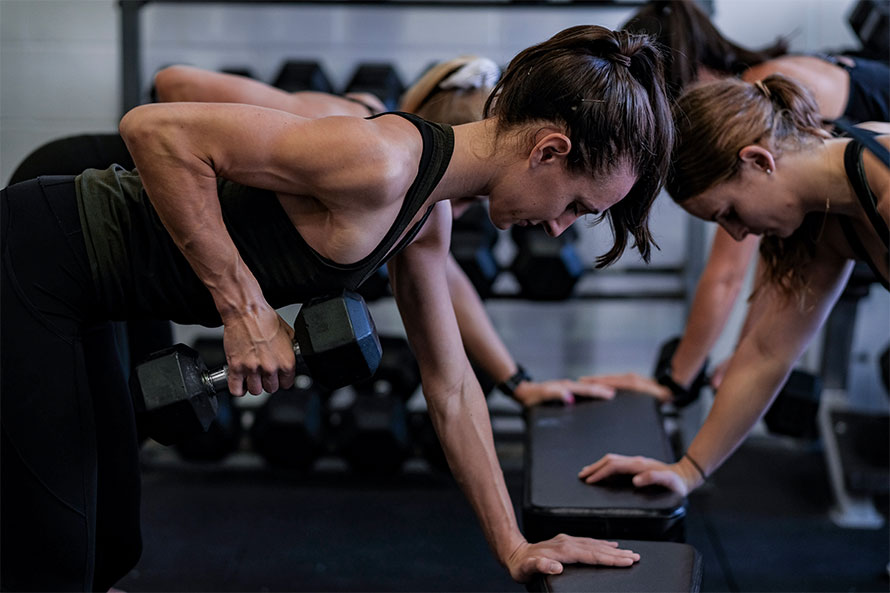
Planning healthy exercise while pregnant is a complicated task. There are many factors you need to take into consideration. Pregnancy weight is one factor to consider, as it may cause a change in your balance near your due date. This could make the weight increase harder on your body, so it is important to discuss which exercises are appropriate for you during this time. Talk to your healthcare provider before you decide on the right exercise. It's up to you, your healthcare provider and whether you plan to run or walk.
Traditional abdominal workouts should be avoided
You may have heard that it is best to avoid abdominal exercises while pregnant. It may sound contradictory, but traditional abdominal exercises can cause damage to your growing baby. You make the breakup between your abdominal muscles more severe and more difficult to repair. You don't have to stop exercising, just change your routine. Continue reading to learn about the risks and benefits associated with traditional abdominal exercises during pregnancy.
Aerobic activity of moderate intensity
It is safe to do moderate-intensity aerobic activities while pregnant. You can safely engage in moderate-intensity activity as long you listen to your body. Exercise during pregnancy can increase muscle tone and stamina and reduce leg pain. It can also improve circulation and alleviate constipation. It can help you maintain your balance, posture, and prepare for childbirth.

Stretching
Regular stretching during pregnancy can reduce aches, pains, and improve your mood. It loosens the entire body and lengthens muscles. It is also extremely beneficial for the developing fetus since it increases the woman’s flexibility. Daily stretching is a great way to maintain organ tone and prevent prolapse. These are some of the best stretches for pregnant woman.
Yoga
If you're looking for a way to stay in shape and tone your muscles while you're pregnant, yoga is a wonderful way to do it. The flexibility of yoga poses is ideal for expecting mothers, and it is gentle on tender joints. Avoid hot yoga for pregnant women, as they can't heat up. You can instead incorporate light exercises into your yoga routines in order to prevent overheating or straining your joints. Discuss modifications with your instructor if you feel discomfort.
Pilates
Most Pilates moves are easy to do during pregnancy. Pilates moves are slow and controlled, which don't stress the joints. You should avoid supine and stomach exercises, but you can still perform planks and other exercises that require a stable and firm body. Your body's natural curves should be respected and your workout intensity reduced. Pilates benefits go beyond its physical benefits.

FAQ
What does butter do?
Butter is one the most nutritious sources of saturated oils. This fat is good for hair and skin health, as well as stronger bones.
Vitamin K is also found in butter, which helps prevent bleeding from cuts or bruises. Vitamin K works together with vitamin C to prevent bruising.
Butter is also rich with minerals, such as calcium and phosphorous. These minerals promote stronger bones, teeth, and teeth.
However, butter has some drawbacks. Butter contains high levels of cholesterol. There are studies that show excess cholesterol may increase the likelihood of developing cardiovascular diseases.
Butter is also high in saturated fat which can lead to obesity and higher cholesterol.
But if butter is a must, you can spread it on bread and not dip it in soups or salads. Bread will absorb more oil than pasta or potatoes.
How quickly can I transform my body?
It all starts by changing your mindset. The first step is to decide to change.
Once you have decided you want to make changes, you will need to commit to your fitness goals at least for 3 months.
Next, you will need to find a program that suits your lifestyle.
Setting realistic expectations is also essential. Don't spend your hard earned money on a gym membership if you don't have the motivation to work hard.
Instead, exercise outdoors in your own time.
Walking around the block for an hour per day will help you lose 1 lb in a week.
Now that you know what you're going to do start planning how you will organize your life to fit this new plan.
This includes scheduling a time to exercise each morning before you leave for work and taking breaks throughout the day so that you can move.
Finally, you should reward yourself when you reach milestones. This could include buying clothes or accessories that reflect your success.
What's a good workout plan for 7 days?
A seven day exercise program should include cardiovascular training (running or biking), strength exercises (using freeweights, weight machines) and one flexibility/core workout. Each activity must be completed at least once per week. Maximum 45 minutes should be allotted for each session.
Cardiovascular Exercises: Swimming, Cycling, Running
Aim to do at least 60 minutes per week of cardio. Aim for 75 minutes per week to get the best results. Cardio exercises can increase blood flow and stimulate the growth of muscles.
Strength Training
Cardio exercises target your heart and lungs. Strengthening your muscles and bones is the opposite. Strength training builds lean muscle mass, which helps burn calories even when resting.
Flexibility and Core Workouts
Your whole body will be stronger if you have flexibility and core training. Both yoga or Pilates are great options.
Is Cardio Exercise Good Or Bad For Your Health?
Cardiovascular exercise is a great way to improve your cardiovascular health. It increases blood circulation, strengthens the heart muscle, boosts stamina, aids in weight loss, and gives you more energy.
Cardiovascular exercise includes running, biking, hiking, swimming, tennis, basketball, soccer, volleyball, football, etc.
It is important to remember that cardio exercises should not be performed at high-intensity levels. Doing this could lead to injury.
The cardiovascular exercise should only be performed if you feel good.
It is important not to push yourself beyond your limits. Otherwise, you could end up injuring yourself.
When you engage in cardiovascular exercise, it is best to warm up first. Start slowly increasing your intensity.
Be aware of your body and listen to it. You should stop immediately if you feel any pain while doing cardiovascular exercise.
It is also advisable to rest after a cardiovascular workout. This allows your muscles time to recover.
To lose weight, you should include cardiovascular exercise in your daily routine.
It is the best way for you to lose calories and decrease belly fat.
Do I need to exercise every day?
No! At least 30 minutes moderate-intensity exercise five days per week is a good goal. This means that you should be able to walk fast enough to feel slightly out of breath, or bike hard enough to sweat.
Statistics
- Candidates and applicants must pass all four tests at 70% (minimum level) to graduate from Basic Deputy U.S. Marshal (BDUSM) Training. (usmarshals.gov)
- Cardmembers earn 5% Back at Amazon.com with a Prime Credit Card. (amazon.com)
- Get free shipping and 25% off today. (healthline.com)
- Are You One of the 20% of Guys (mh.co.za)
- According to the American Heart Association, blood pressure should be checked at least once every two years, beginning at age 20. (my.clevelandclinic.org)
External Links
How To
What nutrients does a person need every day?
Daily nutrition is essential for men's healthy growth. The body needs vitamins, minerals as well as proteins, carbohydrates and fats.
Also, the male body requires certain nutrients at specific times during the day. Your body makes hormones, antibodies and enzymes when you are asleep. Protein is needed to build muscles and repair tissue damaged when you wake up.
Your body uses the night to break down fat and store extra energy as glucose. Your body requires fewer calories, but still needs enough nutrients. You may have an occasional snack during the evening hours if you feel hungry.
When you work out, you need adequate levels of carbs and protein to fuel your muscles. If you train hard, you may experience muscle soreness after exercising.
To prevent this, you should eat carbs as well as protein within the first two hours after training. Your body will break down stored glycogen to provide glucose for energy.
Additionally, it is important to eat protein right away after your workouts are over. This prevents muscle tissue from being broken down while you are sleeping.
Your body can produce lactic acid during intense physical activity. Lactic acid builds up in the bloodstream and causes fatigue. Eat foods high in carbohydrate, such as fruits, vegetables, to avoid this.
Carbohydrates offer your body the energy it needs for recovery from exercise.
A healthy diet should include lean meats such as fish, eggs and milk, cheese, yogurts, beans, seeds, nuts, and beans.
These foods all contain high-quality proteins. Protein is important for muscle growth and repair. It also provides the amino acids your body needs to produce sex hormones and testosterone.
To maintain healthy skin, hair, and joints, you also need sufficient dietary fats. Healthy men require between 20% and 35% of total caloric intake from fat.
Fat protects your heart from cancer and keeps it strong. It keeps your brain healthy and functioning well.
You can get most of the fat you need from vegetable oils like olive oil, sunflower oil, corn oil, soybean oil, peanut oil, and safflower oil.
These oils are high-in monounsaturated, unsaturated fatty acid (MUFAs). MUFAs lower cholesterol and decrease inflammation. They protect your cells from damage by free radicals.
Saturated fats (SFAs), are found mainly in animal products such as meat, milk products, and butter. SFAs can increase LDL ("bad") cholesterol as well as triglycerides. They promote weight gain as well as belly fat.
Polyunsaturated oils (PUFAs), are found in plant-based foods like nuts, seeds and vegetable oils. PUFAs reduce inflammation and improve cardiovascular function. They can also control blood sugar levels and cholesterol.
Low HDL ("good") cholesterol can lead to erectile problems in men. A high intake of saturated fats leads to higher levels of bad cholesterol.
Because of the high levels of nitrates in red meat and pork, men with prostate problems may eat more of them. Nitrites convert to nitrosamines when cooked at high temperatures. These compounds can cause lung cancer.
Most processed meats have nitrites and harmful chemicals. Avoid them.
The American Heart Association recommends eating no more than 2 servings of red meat per week. Instead, choose poultry and fish, legumes, tofu or whole grain bread as your main source of protein.